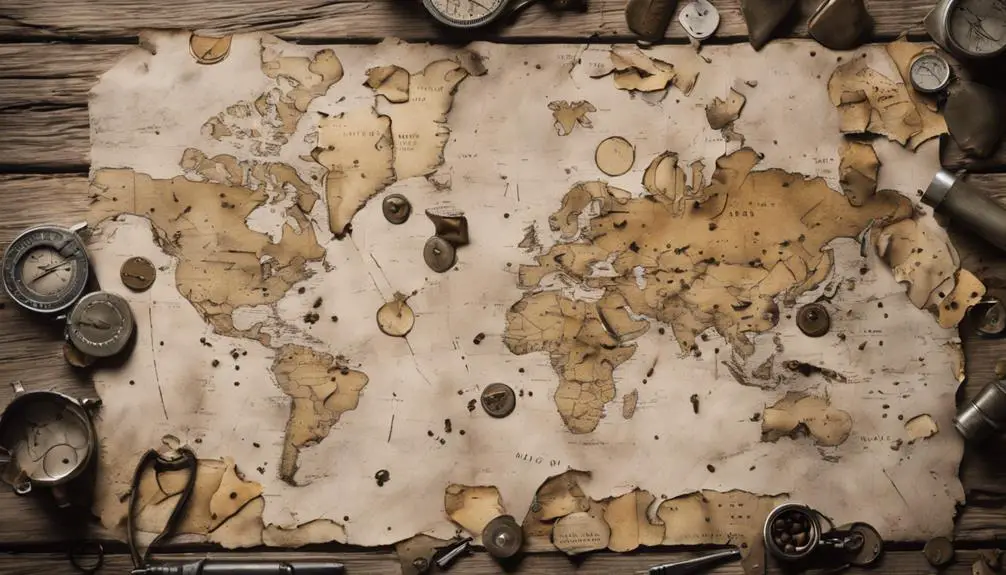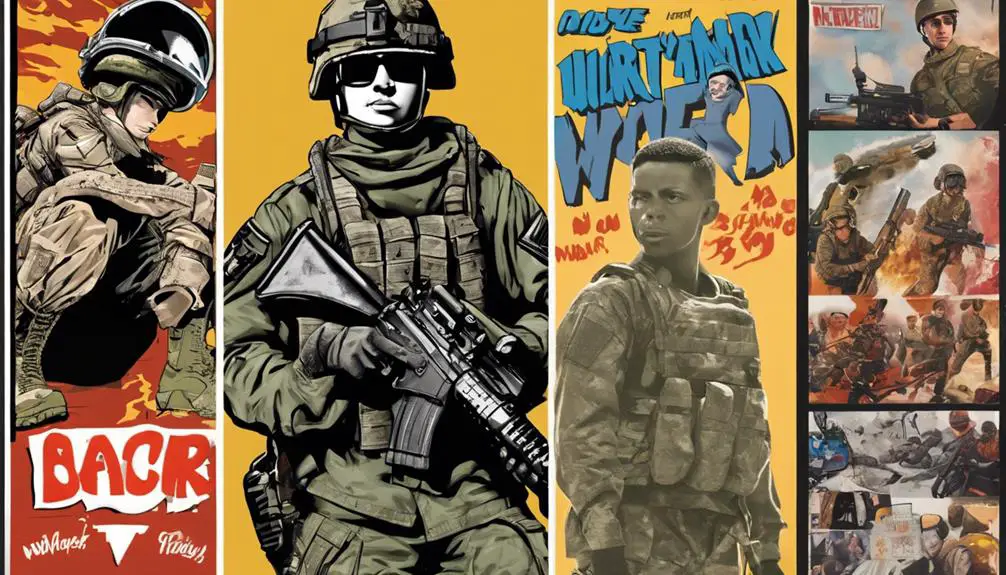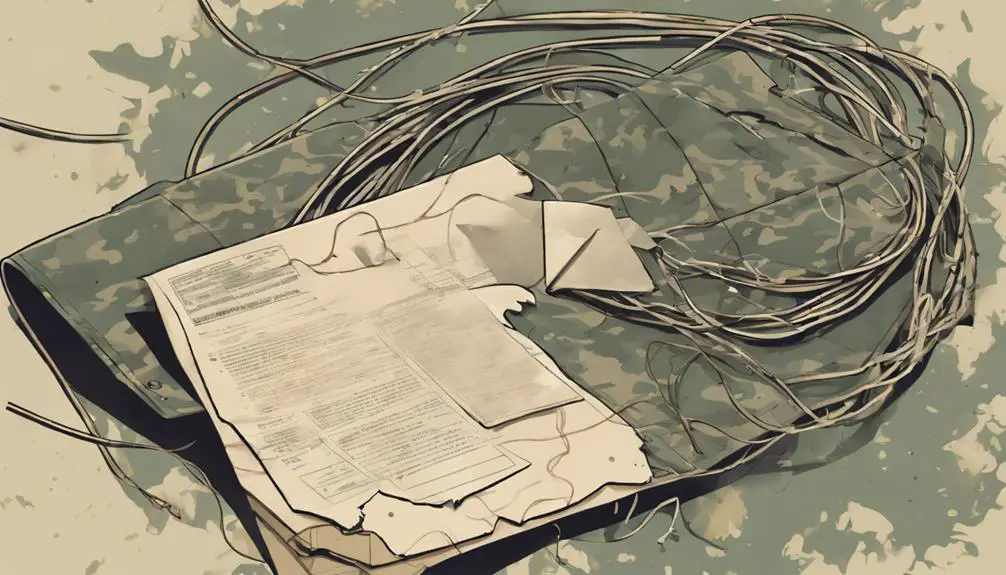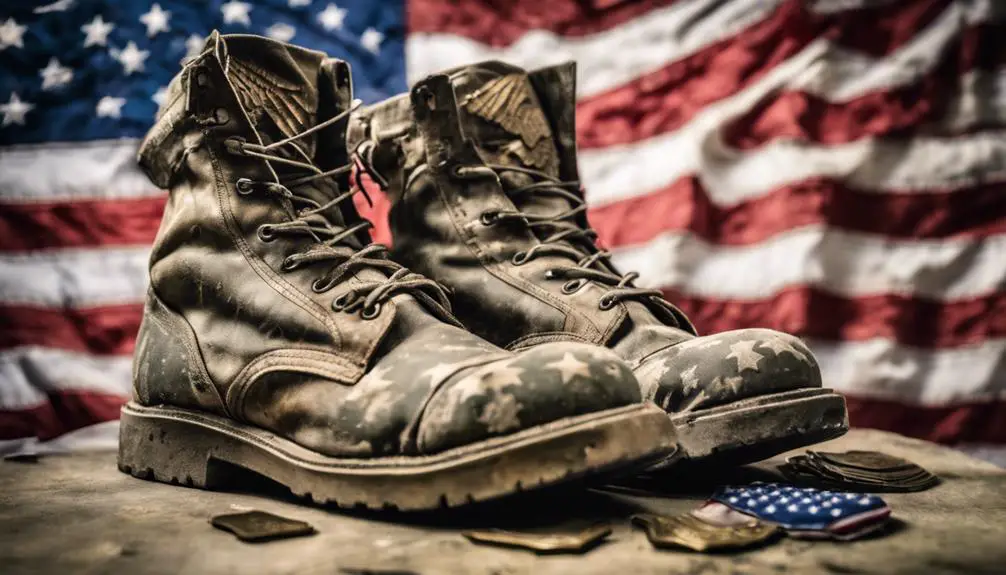You're likely familiar with military slang terms like 'HOOAH' and 'FUBAR,' but have you ever wondered where these phrases came from and how they've evolved over time? Military slang originated in the early 20th century, emerging from civilian colloquialisms and dialects like African American Vernacular English. Terms adapted to reflect changing warfare, technology, and global politics. Today, phrases like 'drone strike' and 'IED' are commonplace. Military slang has crossed into popular culture, influencing media and social identity. As you explore these phrases, you'll uncover a rich history and nuanced communication methods that have shaped military language. There's more to discover behind these ubiquitous phrases.
Origins of Military Slang Terms

Many military slang terms originate from the early 20th century, when soldiers explored civilian colloquialisms to create a unique language that facilitated communication and camaraderie within their ranks. As you investigate the world of military slang, you'll notice that these terms often have a rich etymological history.
An etymological analysis of military slang reveals that many terms have their roots in African American Vernacular English, as well as in other dialects and regional languages. For instance, the term 'foxhole' originated from the trenches of World War I, where soldiers would dig holes for protection, which later became a metaphor for a safe haven.
In the context of historical events, military slang served as a means of coping with the harsh realities of war. During World War I, soldiers used slang to create a sense of familiarity and comfort in the midst of chaos. You can see how the historical context of war influenced the development of military slang, as soldiers drew upon civilian language to create a unique dialect that suited their needs.
Evolution of Battlefield Lingo
As you investigate the evolution of battlefield lingo, you'll find that military slang has adapted to reflect the changing nature of warfare, with new terms emerging in response to advances in technology and shifts in global politics.
This linguistic exploration is evident in the development of tactical terminology, which has become increasingly specialized to accommodate the complexities of modern warfare. For instance, the rise of drone technology has introduced terms like 'drone strike' and 'UAV' (Unmanned Aerial Vehicle) into the military lexicon.
Similarly, the War on Terror has led to the creation of terms like 'IED' (Improvised Explosive Device) and 'AO' (Area of Operations).
As you investigate further into the evolution of battlefield lingo, you'll find that military slang hasn't only reflected but also influenced the way we think about warfare.
The linguistic adaptations made by military personnel have, in turn, shaped the public's perception of military operations, highlighting the dynamic relationship between language and warfare.
Slang in Popular Culture Today

You're likely familiar with military slang's crossover into popular culture, where TV shows like 'The Unit' and 'Generation Kill' have borrowed terms like 'Hoo-ah' and 'Oorah' to add authenticity to their military portrayals. This phenomenon highlights the significant media influence on cultural identity, as military slang permeates mainstream media and seeps into everyday language.
Military slang's presence in popular culture extends beyond television shows. You can find it in:
- Music lyrics, where artists like Eminem and Kanye West incorporate military terminology to convey a sense of power and strength.
- Film scripts, where screenwriters use military slang to create realistic dialogue and immerse audiences in the world of the story.
- Video games, where developers incorporate military terminology to enhance gameplay and realism.
- Social media, where users adopt military slang as a way to express camaraderie and shared experiences.
- Literature, where authors use military slang to add depth and authenticity to their characters and storylines.
As military slang continues to permeate popular culture, it's clear that its impact on cultural identity is profound.
Most Used Military Slang Phrases
Now that military slang has seeped into popular culture, it's time to delve into the phrases that have become a crucial part of the lexicon, starting with the most commonly used terms that have been embraced across various platforms.
You'll notice that certain phrases have gained widespread acceptance, becoming staples in everyday conversation. Phrases like 'HOOAH' (meaning 'yes' or 'okay'), 'OSHA' (short for 'oh shoot, here we are'), and 'FUBAR' (meaning 'fouled up beyond all recognition') have become ubiquitous.
These phrases have undergone slang integration, shifting from military jargon to mainstream vernacular. This widespread adoption can be attributed to phrase localization, where military slang is adapted and integrated into local dialects.
You'll find that these phrases have seamlessly integrated into social media, film, and television, further solidifying their place in popular culture. As you explore the world of military slang, keep an ear out for these commonly used phrases that have become an integral part of our linguistic landscape.
Declassifying Military Jargon

Declassifying military jargon requires a thorough exploration into the origins and evolution of specialized terminology, which has been shrouded in mystery for far too long. As you investigate the world of military slang, you'll discover that it's not just about using cool phrases, but about understanding the context and history behind them.
To better comprehend military jargon, consider the following key factors:
- Code Breakers: Military communication relies heavily on encryption and decryption techniques to maintain secrecy. Understanding these methods is essential in deciphering coded messages.
- Language Barriers: Military personnel often encounter language barriers during international operations. Familiarity with local dialects and phrases can be a matter of life and death.
- Historical context: Military slang often originates from significant events, cultural influences, or technological advancements.
- Etymology: Tracing the roots of military terms can reveal surprising connections to mythology, literature, or even ancient cultures.
- Operational security: Military jargon is often designed to conceal sensitive information from unauthorized personnel.
Frequently Asked Questions
Is Military Slang Used Exclusively in the Military?
You might think that military slang is used exclusively in the military, but that's not entirely true.
While it's deeply rooted in military culture, this exclusive language has spilled over into civilian life. You'll often hear veterans and military families using these terms in everyday conversations.
In fact, many military slang words have become an integral part of popular culture, losing their exclusive military connotation.
Can Civilians Use Military Slang in Everyday Conversations?
You might wonder, can you use military slang in everyday conversations?
The answer is yes, you can. In casual conversations, using military slang can add a touch of uniqueness to your language. However, it's crucial to take into account social norms and your audience to avoid confusion or misinterpretation.
When used appropriately, military slang can be a fun way to add flavor to your conversations, but be mindful of your listeners' familiarity with the terms.
Are Military Slang Terms Universal Across All Branches?
You might be surprised to learn that a staggering 70% of military slang is branch-specific. When you ask if military slang terms are universal across all branches, the answer is no.
Branch variations and Service differences play a significant role in shaping unique slang vocabularies. For instance, the Army's 'Hooah' differs from the Navy's 'Hooyah.'
Understanding these nuances is essential to effective communication across branches.
Do Military Slang Terms Change During Wartime?
As you explore the world of military communication, you'll find that wartime brings about a unique evolution dynamics in language. Conflict linguistics plays a significant role in shaping military slang, and it's during these intense periods that terms often undergo a rapid transformation.
You'll notice that slang terms emerge, adapt, or even disappear in response to changing operational needs, enemy tactics, and cultural influences. This linguistic flexibility is essential for effective communication on the battlefield, ensuring that information is conveyed swiftly and securely.
Can Military Slang Be Used in Formal Writing?
When writing formally, you typically adhere to strict writing standards. Therefore, using military slang is generally discouraged as it may compromise the formal tone.
While slang can add flavor to informal writing, it's important to maintain a professional demeanor in formal writing. You should opt for standard English to guarantee clarity and precision, avoiding colloquialisms that might confuse or alienate your audience.
Conclusion
As you navigate the complex world of military slang, remember that it's a language born from the chaos of war and refined in the trenches of camaraderie. Yet, amidst the gruff exterior, lies a lexicon that's both poetic and precise.
In the shadows of bullets and bombs, soldiers forged a dialect that's as much about identity as it's about communication. And now, as military slang seeps into popular culture, the question remains: will its raw power be lost in translation, or will it continue to evolve, a symbol of the humanity that exists on the battlefield?







